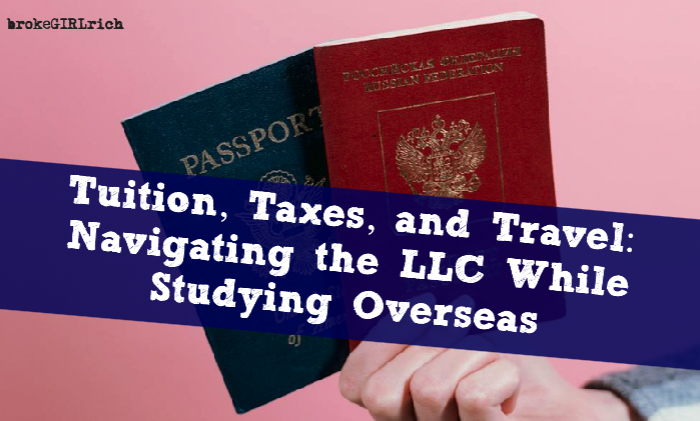
Love, Visas, and the (Emotional and Financial) Toll of Uncertainty | brokeGIRLrich
When I relocated to the UK for my PhD, I was prepared for the typical academic hurdles: late nights buried in research, nerves before presenting at conferences, and the constant chase for funding. However, I never expected to cross paths with a quirky, charming guy who has made my life significantly more enjoyable—yet who has also complicated my future plans after graduation.
Now, with less than a year remaining in my program, my focus has shifted from footnotes and interviews to immigration regulations, post-study visa options, and the exhausting uncertainties that anyone trying to establish a life abroad knows all too well.
The recent immigration white paper released in May 2025 added another layer of complexity. Within Chapter 3, “Skilled Students,” the document presents a familiar mix of acknowledgment and skepticism: international students, it suggests, are vital to the UK economy, contributing billions to educational institutions and local economies. Yet, there’s a growing unease regarding our post-graduation contributions—whether we are securing the “right” jobs or completing our studies at “top” institutions, which feeds into fears of overstaying our welcome.
Reading these points can easily provoke anxiety.
When Love Alters the Game Plan
Before meeting my partner, I fully intended to return to the U.S. after my degree, dreaming of a teaching position at a quaint university in rural New Jersey, closer to my roots. But life isn’t always about plans—sometimes you meet someone special.
Now, leaving feels infinitely more complicated.
After much deliberation, I’ve decided to pursue the UK’s Graduate Route visa, allowing international students to remain for two (or up to three years for PhD holders) after graduation to seek employment. This decision feels right to me; it offers time for me to establish my career and for my partner and me to navigate our shared future. As someone who has lived a more transient life than he has, this compromise involves planning to eventually relocate to the U.S. after those initial three years. Additionally, my work in the arts presents fascinating job prospects, primarily in self-employed positions that I cannot accept under my student visa but could under the graduate visa. Given the current worker shortages in my field, my employment wouldn’t displace any local workers. While this plan isn’t perfect, my love for him makes it viable.
Understanding the RQF—And Its Implications
The white paper highlights concerns surrounding international graduates taking positions “beneath their skill level,” subtly referencing the Regulated Qualifications Framework (RQF). In the UK, this framework categorizes educational qualifications: a bachelor’s is RQF Level 6, a master’s is Level 7, and a PhD, like mine, is Level 8.
There is a worry that too many international graduates are securing jobs below RQF Level 6. However, jobs aren’t categorized according to RQF in reality—academic positions are highly competitive, and entry-level research roles are in short supply. Even with an RQF Level 8 qualification, I may still find myself in communications or project management roles, or even part-time positions, as I establish my career. This doesn’t mean I’m unqualified or misusing the system; it simply reflects the necessity to survive, similar to many others. I believe the paper overlooks the complexities associated with working (and teaching, even at the university level) in the arts, and I suspect many individuals across varying fields share this sentiment.
Yet, the underlying message is clear: if we’re not scaling the “correct” career ladder swiftly enough, our presence here is called into question.
The Financial Reality of Staying
There’s a prevailing notion that international students are financially secure. While this may be true for some, many others struggle to balance research, teaching responsibilities, and part-time jobs. Currently, I am employed under my Tier 4 visa (now known as the Student Route), which permits a maximum of 20 working hours a week during term time and full-time during breaks. Every working hour is intricately scheduled around my studies and financial goals. Visits back to the U.S. are typically packed with additional work commitments as well.
The application for the Graduate Route costs over £800, in addition to the annual Immigration Health Surcharge of £1,035. This is all before considering rent, utility bills, and the challenges of living in cities like London. For us as a couple, marriage transcends romantic intentions; it’s likely to become a practical legal and financial strategy. However, marriage comes with its own set of fees, visa categories, and eligibility criteria. It’s all incredibly complex and costly.
When Policy Becomes Personal
What frustrates me most about this process is how immigration policy reduces individual lives to a series of bullet points. I’m a PhD candidate, a partner, and an active community member. Yet to the Home Office, I’m merely another statistic—one among many who supposedly “abuse the system” or “struggle to find skilled jobs.” It feels incredibly dehumanizing.
Moreover, I take issue with the insinuation that my education is inferior simply because I attend an institution that isn’t ranked among the top in the world. My PhD work is thorough, my advisors are eminent figures in their disciplines, and I’ve dedicated countless hours to my research. The notion that my contributions could be disregarded because of my university’s reputation is infuriating. I deliberately chose this university after one professor stated during my interview, “We explore the unconventional topics that others shy away from,” which has proven to be a remarkable aspect of my experience at the University of Greenwich School of Stage and Screen.
We shouldn’t have to shape our lives around governmental policy papers. Yet, here we find ourselves.
What Can Be Done?
First, we need more nuance. Not every international graduate will immediately secure a high-paying position, and that’s perfectly fine. Honestly, many PhD students aspire to work in academia, which is a challenging path often requiring numerous part-time and contract roles initially. This situation mirrors experiences in the U.S. as well. There’s a need for understanding that the worth of international students extends far beyond economic contributions; it’s deeply human. We bring diverse ideas, languages, and perspectives. We fall in love and build our lives here. That counts.
Second, we need increased transparency and less knee-jerk policy-making. Students invest substantial emotional and financial resources into studying in the UK. Contributing £20.65 billion to the economy annually, we warrant stability instead of constantly shifting expectations.
And finally, we must make our stories known. It’s easy to vilify “foreigners” in cold data sets. It’s much harder to disregard a friend, a coworker, or a loved one. If you’re an international student, a recent graduate, or part of an intercultural relationship, your story holds weight. Share it. Let others see the human side of immigration policy.
Because ultimately, we aren’t just statistics. Additionally, this is just the beginning; the immigration white paper impacts various visa types, not limited to students. As I uncover more information, I’ll continue to share it here.





